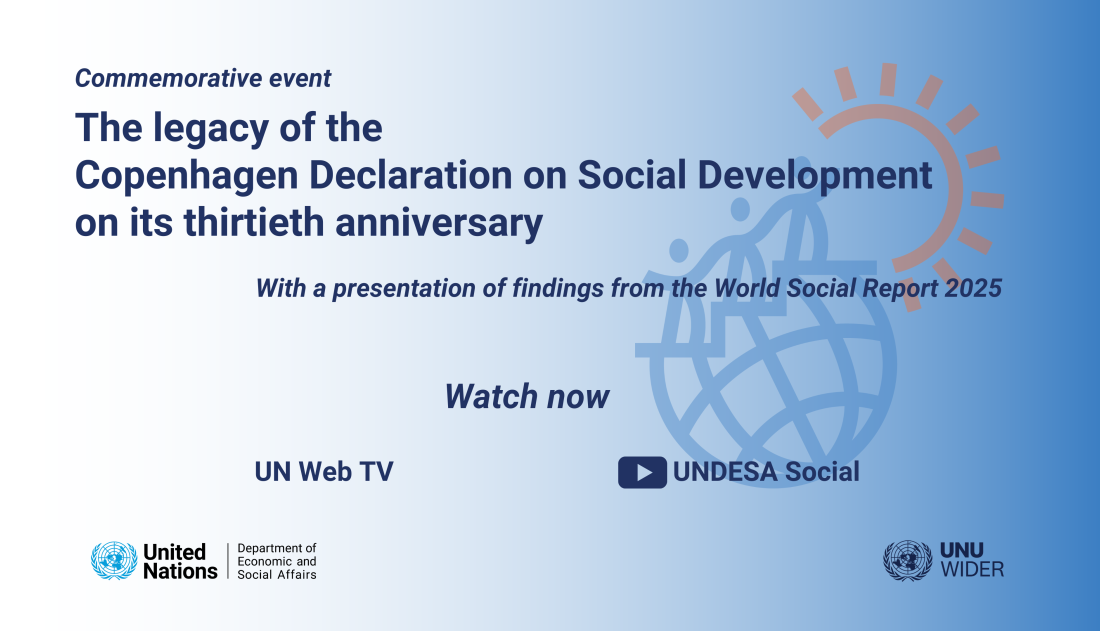
On 12 March, 1995, the Copenhagen Declaration on Social Development was signed at the World Summit for Social Development. Never before had so many world leaders come together for such a purpose - to recognize the significance of social development and human well-being for all, and to give these goals the highest priority into the twenty-first century.
The central tenet of the Copenhagen Declaration is the importance of putting people at the center of development efforts, echoed by the 2030 Agenda for Sustainable Development’s rallying cries to ensure that no one will be left behind and reach the furthest behind first. Through its 17 Sustainable Development Goals, the 2030 Agenda reaffirmed the vision and aspirations set forth in the Copenhagen Declaration.
With the Second World Summit for Social Development fast approaching, the time is ripe to examine where the commitments from Copenhagen, now enshrined in the 2030 Agenda, stand today, and reassert that a strong social perspective on development is a must to accelerate and sustain progress towards the SDGs by 2030 and beyond.

On 17 March, 2025, the Division for Inclusive Social Development of DESA, in collaboration with UNU-WIDER, organized a commemorative event to discuss the legacy of the Copenhagen Declaration on Social Development on the thirtieth anniversary of its adoption with the aim of mobilizing support for a high-ambition outcome at the Second World Summit for Social Development.
Participants highlighted the contributions of the Copenhagen Declaration on Social Development and Programme of Action to today’s global sustainable development agenda and examined challenges that stand in the way of progress towards such commitments, supported by new evidence from the upcoming World Social Report 2025.
In advance of the two major United Nations meetings in 2025 – the Fourth Conference on Financing for Development (Seville, Spain) and the Second World Summit on Social Development (Doha, Qatar) – participants stressed the need for political leadership and concrete actions to improve people’s lives and strengthen the social dimension of sustainable development.
Speakers at the event included: António Guterres, Secretary-General of the United Nations; LI Junhua, Under-Secretary-General of UN DESA; His Excellency Omar Hilale, Permanent Representative of the Kingdom of Morocco to the United Nations; Her Excellency Alya Ahmed Saif Al-Thani, Permanent Representative of the State of Qatar to the United Nations; His Excellency Héctor José Gómez Hernández, Permanent Representative of Spain to the United Nations; and His Excellency Juan Somavía, Former Permanent Representative of Chile to the United Nations, former Director-General of the International Labour Organization and an honorary member of the Club De Madrid.
Marta Roig, Chief of the Emerging Issues and Trends in Development Section of DESA, and Patricia Justino, Deputy Director of the United Nations World Institute for Development Economics Research, joined for a conversation on the World Social Report 2025: a new policy consensus to accelerate social progress.
The event is available to watch on demand through the DISD YouTube channel and UN Web TV.
 Welcome to the United Nations
Welcome to the United Nations


